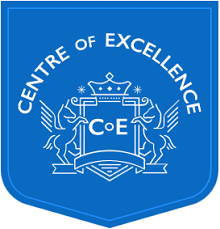This Bookkeeping and Accounting Diploma Course is for those who have a very minimal knowledge in this area. In this course, you will learn the basics of bookkeeping and accountancy and as well as more complex principles and concepts and practices.
There are many practical examples and full explanations, students who complete this accounting course will be equipped with a greater understanding and be able to understand the basics of bookkeeping and accountancy in businesses. This will allow them to attend to their own accounts or use the course as a feeder into more specific areas and more advanced qualifications in bookkeeping and accounting.
This course focuses on the accounting rules, principles, concepts and presumptions that govern the application of accounting procedures, referred to as the Generally Accepted Accounting Principles or GAAP. Understanding these are of paramount importance, as you will abide by these concepts and principles every time you analyse, record, summarise, report and interpret financial transactions of a business.
As the main source from which financial statements are prepared, it is important to understand how to identify, record, and provide source documents of business transactions inline with a company’s financial policies and the industry-acceptable practice.
Students will learn about the Accounting Information Cycle, Trial Balance and General Ledgers, and the importance of converting transactional to accounting information, in a standardised manner is stressed.
You will learn the basics of manufacturing, trading, profit and loss account, the Balance Sheet and the Cash Flow Statement. You will have an understanding of the subject, with the introduction of work in progress, purchase returns, opening and closing stock of raw materials, and the treatment of major components in accounting, such as cost of goods sold direct and indirect cost.
Students will learn the difference between accounts for profit-making and not-for-profit organisations, the technique for preparing receipts and payment accounts and income and expenditure accounts and the difference between the two, the technique for preparing the balance sheet of Not-for-Profit organisations and how to identify avenues of expenses are also covered.
Before final accounts are prepared, a trial balance is created. During the time between this being created and final accounts being prepared, adjustments are made. You will also learn about the impact that technology has had on accounting, the accounting software packages that can be used, as well as the pros and cons of using Microsoft Excel to complete basic tasks and how cloud computing can be used in accounting, again outlining the pros and cons of its use.
Students will gain an understanding of the different types of taxes applicable to various businesses and individuals, the impact of this and company loss and tax relief, and how to manage and plan for the impact of tax on these groups. And finally, you will analyse and interpret financial statements (Ratio Analysis), understand what key financial ratios are, how they are used, and learn how to prepare them and apply them to a business.
See the course syllabus below for each module.
Module 1: Introduction to Accounting
- Part 1: Brief History of Accounting
- Part 2: From Transaction to Information
- Part 3: Summary
- Module 1 Assessment
Module 2: Basic Accounting
- Assumptions, Concepts & Principles
- Part 1: Basic Accounting Assumptions,
- Concepts & Principles
- Part 2: The Double Entry System
- Part 3: Summary
- Module 2 Assessment
Module 3: Capturing and Recording Business Transactions
- Part 1: Capturing and Recording
- Business Transactions
- Part 2: Books of Original Entry
- Part 3: Cash Book
- Part 4: Summary
- Module 3 Assessment
Module 4: Transforming Transaction Data to Useful Accounting Information
- Part 1: The Accounting Information
- Cycle (I)
- Part 2: Basic Accounting – The Trial
- Balance
- Part 3: Summary
- Module 4 Assessment
Module 5: Transforming Accounting Data to Accounting Information
- Part 1: The Final Accounts
- Part 2: Profit and Loss Account
- Part 3: Bringing the Balance Sheet
- Together
- Part 4: Summary
- Module 5 Assessment
Module 6: Accounting for Not-forProfit Organisations
- Part 1: Accounting for Not-for-Profit
- Organisations
- Part 2: Treatment of Special Items
- Part 3: Summary
- Module 6 Assessment
Module 7: Adjustment Entries to Final Accounts
- Part 1: Adjustment Entries to Final Accounts
- Part 2: Summary of Types and
- Treatment of Adjusting Entries
- Part 3: The Difference between the P&L and Balance Sheet
- Part 4: Summary
- Module 7 Assessment
Module 8: Using Computers in Accounting
- Part 1: Using Computers in Accounting
- Part 2: Accounting Computing Software (ACS)
- Part 3: Summary
- Module 8 Assessment
Module 9: Business and Tax
- Part 1: Business and Tax
- Part 2: Corporation Tax Payment
- Process
- Part 3: Company Losses
- Part 4: Summary
- Module 9 Assessment
Module 10: The Analysis and Interpretation of Financial Statement
- Part 1: Financial Analysis
- Part 2: Financial Interpretation – Ratio Analysis
- Part 3: Profitability ratios
- Part 4: Investment ratios
- Part 5: Activity ratios
- Part 6: Leverage (Gearing) ratios
- Part 7: Summary
- Module 10 Assessment
Accreditations
The Accounting and Bookkeeping Diploma Course will take you up to 150 hours to complete work from home. There is no time limit for completing this course, it can be studied in your own time at your own pace. This is a Level 3 course and will give you 150 CPD (Continued Professional Development) points.
Upon completion of your course assessments, you will receive 3 certificates. An accredited certificate from the awarding body relating to your course, a CPD certificate displaying the number of CPD points earned from the course and a certified Diploma certificate from the Centre of Excellence.
